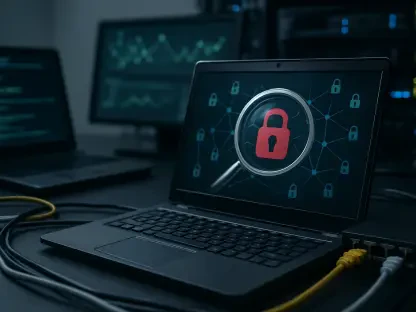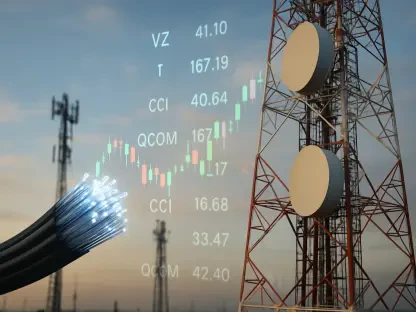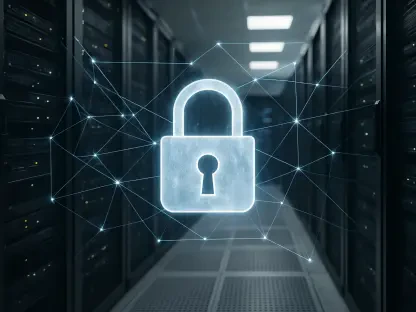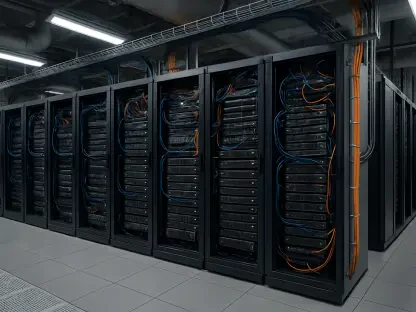In today’s interconnected industrial landscape, remote access solutions are indispensable, yet their growing reliance necessitates heightened security vigilance. As industries increasingly adopt remote monitoring and control, the vulnerabilities associated with such systems become a pressing concern. Recently, critical security issues were discovered in a prominent industrial remote access service’s VPN client, highlighting potential risks to Windows and Linux systems. These findings underscore the importance of ongoing security assessments and updates to protect sensitive information and maintain system integrity.
Addressing Vulnerabilities in IXON VPN
Identifying Critical Security Flaws
The industrial sector’s reliance on remote access technologies presents both unparalleled opportunities and significant security challenges. Recent findings demonstrate three key vulnerabilities in a popular VPN service provided by a Dutch company, IXON. These flaws, labeled as CVE-2025-ZZZ-01, CVE-2025-ZZZ-02, and CVE-2025-ZZZ-03, underscore the persistence of security risks, particularly related to local privilege escalation (LPE). Despite these vulnerabilities not yet being officially registered with MITRE, they present an immediate threat requiring user awareness and swift action. The primary concern centers around the improper handling of OpenVPN configuration files. On Linux systems, the vulnerabilities emerge when temporary files stored in the “/tmp” directory are intercepted and manipulated by an attacker, leading to privilege escalation. Similarly, Windows users face risks from temporary files stored in “C:\Windows\Temp,” which are susceptible to race condition exploitation. These vulnerabilities could enable unauthorized execution of code at the SYSTEM level without the necessity of an active VPN connection, emphasizing the criticality of secure configuration file management.
The Role of Secure File Management
The revelation of these vulnerabilities brings to the forefront the essential nature of secure file handling practices for safeguarding industrial systems. IXON acts as a fundamental service enabling seamless remote access to industrial networks, and its vulnerability highlights the potential risks of inadequate security measures. The company’s proactive response includes the release of a patch within the 1.4.4 client version. By addressing the vulnerabilities through the relocation of temporary OpenVPN configuration files to directories with restricted access, IXON aims to curtail the possibility of unauthorized use and enhance the overall security posture of their VPN service. This scenario stands as a critical reminder of the ongoing need for robust and dynamic security measures, especially in an environment where cyber threats continue to evolve at a rapid pace. Such implementations not only protect current systems but also lay a robust foundation for future technological advancements by mitigating potential risks before they escalate.
Implications for Industrial Systems
Significance of Proactive Security Measures
For industries leveraging IXON’s VPN services to implement remote access solutions, these security revelations carry weighty implications. The discovered vulnerabilities, if left unaddressed, pose a substantive risk to the integrity and safety of critical industrial systems. Industrial environments, characterized by complex network configurations and numerous connected devices, are inherently susceptible to cyberattacks. The exploitation of identified vulnerabilities could lead to unauthorized access, data breaches, or even operational disruptions, each presenting significant financial and reputational consequences. Given the escalating sophistication of cyber threats, maintaining an unwavering focus on security measures is paramount. Organizations must remain vigilant in identifying and remediating vulnerabilities swiftly, ensuring that their systems can withstand potential attacks. Proactive security measures tailored to the specific needs of industrial environments constitute an indispensable element of an effective cybersecurity strategy.
Emphasizing Ongoing Security Assessments
In the evolving landscape of cybersecurity, it’s crucial for industrial stakeholders to prioritize regular security assessments as a fundamental component of their strategy. The dynamic nature of cyber threats necessitates continuous monitoring and updating of systems to identify vulnerabilities at the earliest possible stage. Adopting a proactive approach, rather than a reactive one, is essential to preempting risks and maintaining resilience against potential intrusions or breaches. Collaborating with technology developers fosters a shared commitment to security excellence. Developers play a critical role in promptly addressing vulnerabilities through timely software updates and patches, significantly minimizing the risk of exploitation. Users, in turn, must remain informed, treating security updates as non-negotiable components of their digital hygiene. By fostering this collaboration, industrial systems can bolster their defenses, ensuring the ongoing protection of critical infrastructure and data.
Strengthening Future Security Practices
In our modern-day industrial environment, where systems are increasingly interconnected, remote access solutions have become essential tools. However, this growing dependence on remote access also necessitates heightened security measures. As more industries implement remote monitoring and control mechanisms, the security vulnerabilities inherent in such systems have become an urgent issue. Recently, significant security vulnerabilities were identified in a widely used industrial remote access service’s VPN client. These vulnerabilities pose potential threats to Windows and Linux operating systems. This discovery serves as a warning about the critical importance of regular security evaluations and system updates to safeguard sensitive data and ensure the security of system operations. Continuous vigilance and proactive measures are essential to maintaining the integrity and reliability of these vital systems. By addressing these security issues, industries can better protect their infrastructure and maintain robust defenses against potential cyber threats.









